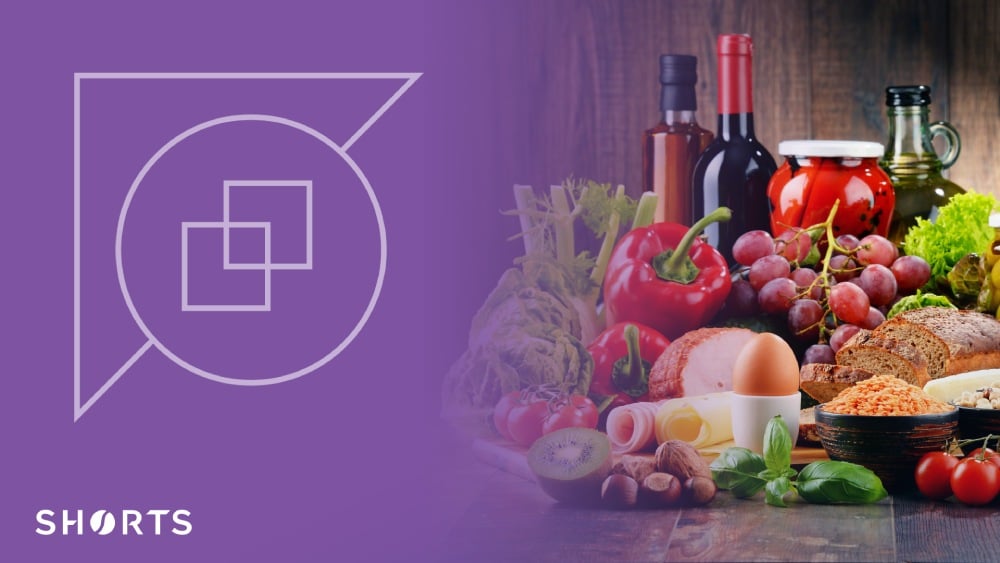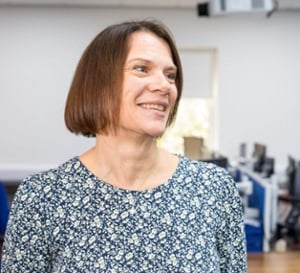
Is food for human consumption zero-rated for VAT? In theory, yes. But this depends on what is defined as "food". In practice, it is not always easy or straightforward to define.
Shorts's VAT team outlines the basic VAT treatment for various food products, including some of the nuances that can make this a perplexing (and often controversial) topic.
How does HMRC define "food" for VAT purposes?
HMRC guidance defines food as “a product used for human consumption” if both of the following apply:
- The average person, knowing what it is and how it’s used, would consider it to be food or drink.
- It is fit for human consumption.
Food includes:
- Products eaten as part of a meal, or as a snack (unless specifically excluded)
- Products not eaten by themselves but recognised as ingredients (e.g., flour)
Food products that fit these definitions will be zero-rated for VAT. However, there are exceptions to this rule, which can sometimes create confusion for consumers and businesses alike.
These exceptions include: confectionery, dietary supplements, food additives, and similar products, which, although edible, do not fall under the HMRC's classification of "food" for VAT purposes. This is a typical example of how the devil is in the detail with VAT rules.
VAT on confectionery
VAT is charged at a standard rate of 20% for most confectionery, as well as "sweetened and prepared food which is normally eaten with the fingers". This covers many products that are generally considered to be indulgent treats rather than staple foods.
Standard-rated confectionery items
Confectionery on which VAT at the standard rate (20%) is charged includes
- Chocolates
- Sweets
- Cereal bars
- Fruit bars
- Chocolate biscuits
VAT is also charged on other items of "sweetened and prepared food which is normally eaten with the fingers." For example:
- Chocolate bars
- Diabetic chocolate
- Liqueur chocolates
- Pastilles
- Lollipops
- Candy floss
- Sherbet
- Chewing gum
- Turkish delight
Any product designed to be eaten while frozen is always standard rated, for example:
- Ice cream
- Sorbets
- Frozen yoghurt
- Ice cream gateaux and cakes (such as Arctic rolls and Viennetta)
What about cakes?
However, cakes are zero-rated, Examples include the following:
- Sponge cakes
- Pastries
- Eclairs
- Meringues
- Flapjacks
- Marshmallow teacakes and snowballs
In some cases, a product can be a zero-rated foodstuff or standard-rated confectionery. For example, sweet-tasting dried fruit held out for sale as a baking ingredient is zero-rated, but it is standard-rated if held out for sale as confectionery.
Marshmallows provide another example. Mini marshmallows used as a baking ingredient and giant marshmallows for toasting are zero rated but the mid-sized marshmallows are treated as confectionery and subject to VAT at the standard rate.
It is not always easy to ascertain whether a product is a zero-rated food, and this has resulted in many tribunal cases, including the now famous Jaffa Cake case, which confirmed that Jaffa Cakes are zero-rated cakes, not standard-rated biscuits.
VAT and savoury snacks
HMRC identifies three categories of savoury snack products which are subject to VAT at the standard rate:
- potato snacks and similar products, made from potato or from potato flour or potato starch
- snacks made by the swelling of cereals to produce an expanded, aerated product
- roasted and salted nuts
For standard rating to apply to potato and cereal products they must also be packaged and ready to eat without any further preparation by the customer. For example, pre-packed for retail sale in a sealed bag, carton or other container. However, roasted or salted nuts are standard rated even when sold loose.
Savoury snacks not falling within one of these three categories are zero-rated.
VAT on hot food
VAT on the sale of hot food is normally charged at the standard rate. However many bakery products, particularly bread, pies, pasties, and other savouries, are baked on the retail premises and sold whilst still hot but are zero rated if the food is not intentionally kept hot and is being sold hot purely because it is freshly baked.
- VAT is chargeable on products kept warm in heated cabinets, under heat lamps, on spits, in hot water, on hot shelves or trays.
- VAT must also be charged on products kept warm in cooling-down ovens, which slow down the rate of cooling.
- If they are not kept warm, the majority of baked products will qualify to be zero-rated.
VAT on takeaway food
HMRC defines takeaway food and drinks as food and drink sold for consumption off the premises. Food or drink is considered to be ‘hot’ if it is sold at a temperature above the ambient air temperature.
Cold takeaway food and drink is zero-rated, unless it is a product that is usually standard rated. Potato crisps, chocolate, and cold beverages such as cans of pop and bottled water are examples of this.
VAT at the standard rate is charged on hot takeaway food and drink, such as:
- Chips, dirty fries, battered fish, and similar battered/fried items.
- Chinese and Indian takeaway meals
- Pizzas and kebabs
- Baked potatoes with a hot or cold filling
- Hot dogs and hamburgers
- Pies, rolls, sausage rolls, pasties and similar items unless sold warm simply because they happen to be freshly baked and are in the process of cooling down.
- Toasted sandwiches
- Hot soup
- Tea, coffee, chocolate, and other hot drinks
VAT is also charged on food kept warm in foil bags or insulated containers, such as naan bread and garlic bread sold in a foil-lined bag.
VAT on catering
VAT at the standard rate is charged on any supply of food or drink as part of a contract for catering.
Catering is the supply of prepared food and drink which involves a significant element of service. Examples of supplies of catering include:
- Food and drink supplied by restaurants, cafés, canteens, pubs and bars (except supplies of cold takeaway food)
- Catering provided for events and functions, such as wedding receptions, parties or conferences
- Cooking or preparation of food provided to a customer at the customer’s home, for example, for a dinner party
- Delivery of cooked ready-to-eat food or meals
However, any food which customers must prepare themselves before it can be consumed is not considered a supply of catering. Examples of such preparation include the thawing of frozen food, cooking food, and reheating pre-cooked food. Food requiring further preparation is zero-rated.
When to seek advice
The rules for establishing the VAT treatment of food are complex and can often be contradictory. In particular, it is not straightforward to determine the VAT treatment of savoury snacks, cereal and fruit bars, food supplements and sports nutrition products.
It is important to take advice if there is any doubt as to whether a product qualifies for zero rating. If you require advice on VAT in relation to food, we encourage you to get in touch with our VAT team today.

Lynne Gill
My area of expertise is land and property transactions but I have extensive knowledge of both domestic and international VAT and I love complex VAT queries. I have an Honours degree in Business Studies and a VAT legal and technical qualification from the Institute of Indirect Taxation.
View my articlesTags: VAT
